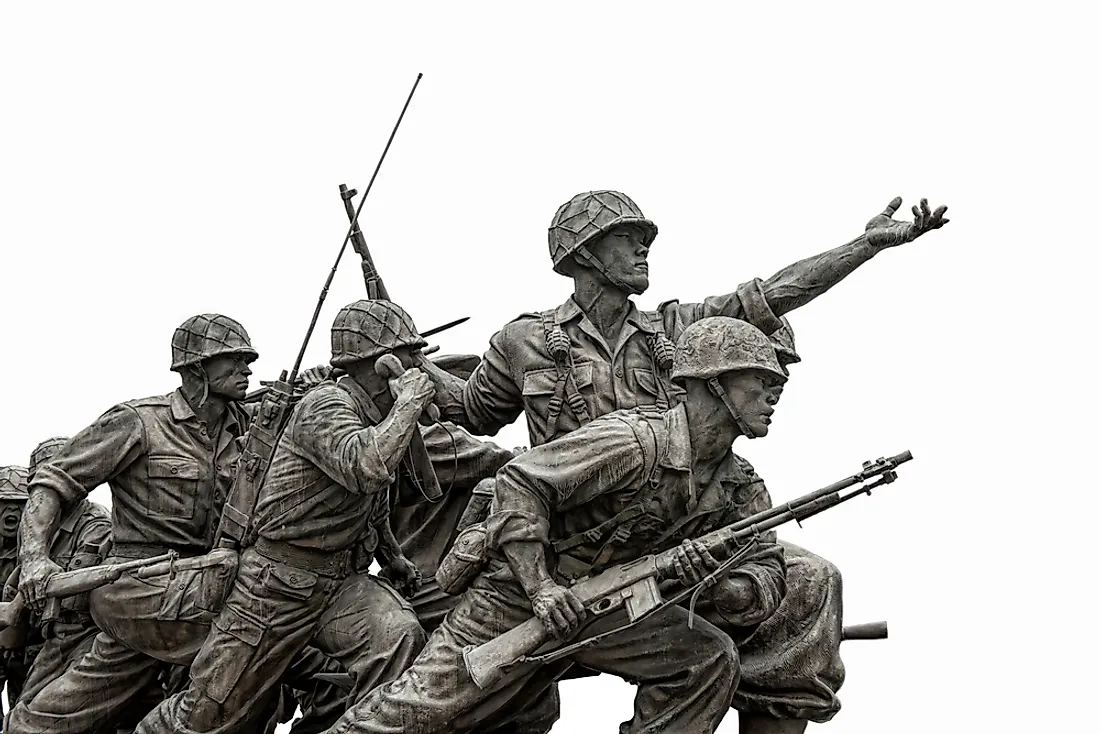Third Battle Of Seoul - Korean War

5. Background
The Third Battle of Seoul was one of the most important engagements of the Korean War. The battle started on December 31st, 1950, and ended on January 7th, 1951, with the Chinese capture of the capital of South Korea. The battle was part of the Chinese New Year's Offensive, a coordinated attack on the western defenses of the United Nations that intended to capture Seoul. Mao Zedong, Chairman of the People's Republic of China, believed that the United Nations (UN) could not resist another Chinese attack, and therefore planned to capture Seoul in order to place overwhelming pressure on the UN lines and force them to retreat from Korea.
4. MAKEUP OF THE FORCES
General McArthur was the commander of the UN forces in Korea. Among his forces were around 150,000 soldiers. These were mostly made up of members of the U.S. Eighth Army. Also counted with them were attached military units from Australia, South Korea, Thailand, and the United Kingdom, all coming together to defend South Korea's capital. Confronting him, General Peng Dehuai commanded the Chinese 13th Army, and was entrusted the task of capturing Seoul. He had some 170,000 troops under his command, including a North Korean Corps, ready to attack the city. Despite its massive size, his army suffered from overextended supply lines, and was fatigued from months of marching and fighting.
3. DESCRIPTION OF THE BATTLE
The battle was fought proximate to the Korean Dividing Line at the 38th Parallel, amidst the harshness of the cold Korean winter. Winter made it easy for the Chinese to cross the frozen Han River, and McArthur anticipated that he wouldn't be able to keep Seoul. Therefore, he planned to be ready to slowly retreat to the Pusan Perimeter, in the event that the Chinese attack couldn't be contained. Meanwhile, after having been convinced that the Chinese Army was in no state to push the UN out of the Korean Peninsula, Mao settled for a more limited attack. Therein, Mao and his generals planned to concentrate their efforts against the weak South Korean units on the 38th Parallel.
2. OUTCOMES
The Chinese offensive commenced on the night of December 31st, 1950, when they bombarded the South Korean positions on the 38th Parallel, and subsequently launching an infantry assault upon their weakened flanks. The Chinese had carefully reconnoitered the UN Allied defenses, and had navigated the paths of least resistance into the South Korean lines. By the next morning, the South Korean 1st Division was in a full retreat, followed shortly after by the 6th Division. Meanwhile, to the east, the Chinese isolated the South Korean III Corps by attacking Kapyong and Chuncheon. By January 3rd, the UN forces’ fronts had been penetrated on all sides, so the UN Allies retreated from Seoul. The Chinese victory cost them around 8,500 casualties, with about two-thirds of these being Chinese, and the remainder North Korean. On the opposing side, the UN saw the loss of some 800 dead, wounded, and captured among the United States’, United Kingdom’s, and Australian forces. Exact figures of South Korean losses in the battle are unknown, though Chinese estimates at the time put their estimates for total Allied losses at more than twice their own. However, these numbers were likely inflated for propaganda purposes.
1. Historical Significance and Legacy
The capture of Seoul had been an enormous military and propaganda victory for the Chinese. Seoul was the last in a string of Chinese victories that had, in their eyes, cemented their reputation for invincibility. The UN commanders even discussed evacuating the Korean Peninsula, as Mao and his generals had hoped. In reality, however, the truth became clear in the months to come that the Chinese had been greatly overextended, and in the following operations they would pay a high price for trying to keep up their offensive against an increasingly well-organized and materially superior UN military. The UN launched a series of limited attacks to regain the lost ground, and finally recaptured Seoul in March and April of 1951 in Operation Ripper.











